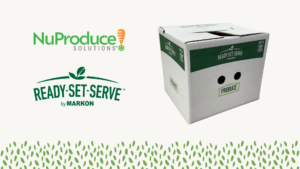If you want to know if your product contains wheat, flavorings and/or artificial sweeteners, you could simply check the ingredient label. According to the Food and Drug Administration (FDA), these ingredients are required to be listed on the label. But, if you want to know if your product contains genetically modified organisms (GMOs), you would have to call the manufacturer to seek the answer.
What are GMOs?
Genetically Modified Organisms, or GMOs, are gaining a lot of attention from consumers, the industry, and the government due to its increased use in the food supply, and the public debate over the safety of the product.
GMOs are also used in research, production of pharmaceutical drugs, gene therapy and agriculture. In agriculture, genetically modified crops may be developed to improve nutrition profiles, increase yield or improve the ability of a crop to thrive in difficult environments. GMOs are not new, and in fact have been in our food supply for over 20 years now.
According to the USDA, corn and soybeans are the most common genetically engineered (GE) food crops in the U.S. – most of which are used as sources of food ingredients, and as sources of animal feed. The FDA does have our safety in mind and as a result, “Food and food ingredients derived from GE plants must adhere to the same safety requirements under the Federal Food, Drug, and Cosmetic (FD&C) Act that apply to food and food ingredients derived from traditionally bred plants.”
So why all the controversy with GMOs in our food supply?
The key point that is being brought to light is whether or not they should be required to be labeled by the FDA, what role the government would then have, and ultimately the impact on the farmers aiming to feed the world population.
Many countries do require this labeling and even here in the U.S. some states, such as Vermont, have passed a law that requires the labeling of genetically modified foods available for retail sale by July 2016. This obviously poses challenges for manufacturers distributing the same product to multiple states.
The FDA does support voluntary labeling of GMOs, and have issued guidance for the food industry.
To date, no ill effects have been proven in the human population, however several advocacy groups claim the risks have not yet been identified or managed and would like more research done on the subject – or at minimum, have the product labeled accordingly.




























